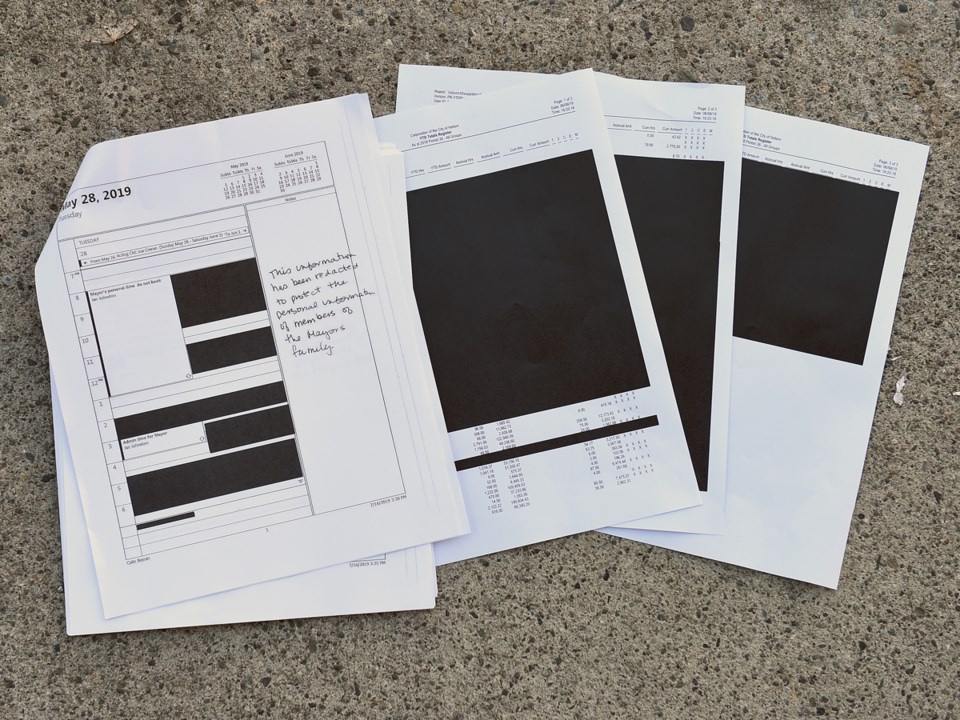The B.C. government has work to do to turn around what many advocates of democracy deem to be a culture of secrecy within its access to information system, according to a special committee report tabled to the legislature.
The Special Committee to Review the Freedom of Information and Protection of Privacy Act “recognizes that access to information and protection of privacy are interconnected and vital for promoting trust in public bodies” and as such it has made recommendations requiring “immediate action.”
The committee, comprising eight members of the Legislative Assembly of B.C. from three parties, was struck following a controversial decision by the Ministry of Citizens’ Services last November to start charging $10 per application for access to information.
The committee, however, did not recommend scrapping that new fee. Instead, it suggests removing the application fee and any applicable processing fee in the event a public body does not meet the statutory response deadline.
The committee has recommended changing the response deadline from 30 business days to 30 calendar days.
The Ministry of Citizens’ Services reported receiving more than 10,000 freedom of information requests in 2020-21, and that the average cost to process one request is $3,000, the report noted.
Fees are not charged to persons accessing personal information nor First Nations governing bodies.
“The Canadian Association of Journalists advised that the government’s intended aim to disincentivize repetitious, vexatious, or politically motivated requests could have been dealt with in a more targeted manner, rather than by charging an application fee,” noted the report.
The committee touched on data security, including how the B.C. government amended the act in 2021 to allow data storage outside of Canada. However the committee made no recommendation to reverse course but instead suggested government look at developing domestic server capacity.
“Members agreed that data is one of the most valuable commodities and it is important to have a strong regulatory framework in place to protect information, and acknowledged that data held in other jurisdictions is not subject to British Columbia’s laws. They also noted that the present reality of data use and storage means that data security is complex and requires an assessment of multiple risks,” the report stated.
The committee also recommends adding a “duty to document” to the act, to ensure all public bodies create and manage detailed records of decisions and actions. The committee heard of how government officials may make decisions and communicate on matters in person or on the phone and such records are not documented.
The Union of British Columbia Indian Chiefs views this failure to retain records as a barrier faced by First Nations in accessing government information to substantiate their claims, the committee noted.
Another big issue addressed by the committee is a recommendation to “extend freedom of information provisions to the administrative functions of the Legislative Assembly and ensure records subject to parliamentary privilege, including those related to the work of members and their constituency offices, remain exempt.”
This issue was at the forefront of public discussion when former House Speaker Darryl Plecas noted in 2018 there was poor oversight of spending on the part of legislature workers. The matter led to House clerk Craig James being prosecuted for fraud last month.
The report dives into granular details of the act, addressing how there exists a discretionary exception for “advice” or “recommendations” by bureaucrats to be redacted from information requests. The committee recommends such exemptions “not extend to facts upon which they are based; or for factual, investigative or background material; or for the assessment or analysis of such material; or for professional or technical opinions.”
The committee asks the act clarify that the exception applies only to legal advice provided in confidence and “not any time a lawyer is involved in providing policy or program advice.”
The committee also recommends public bodies expand proactive disclosures, particularly with categories of records that are regularly requested and released. It also recommends records related to public procurement processes to be proactively released, including when a process is cancelled.
Information requests are supposed to be handled by bureaucrats who have a “duty to assist” the applicant, but journalist Bob Mackin told the committee the relationship with journalists can be adversarial, the report stated.
As such, the committee recommends strengthening that duty to assist in the act, “including ensuring public bodies are aware of the duty to assist applicants and requiring public bodies to provide timely, accurate and fulsome assistance to applicants.”
The BC Freedom of Information and Privacy Association explained that public bodies have a “culture of secrecy by default, in which there is a focus on the risks associated with releasing records.”
Mackin and journalist Sean Holman told the committee such a culture, where citizens are not provided information, undermines democracy and incites conspiracy theorists and extremist ideologies.
Information and Privacy Commissioner Michael McEvoy said the committee’s report “sends an especially strong message about the need for a fundamental shift towards a culture of transparency — a shift that will help build and maintain trust between public bodies and the public.”
McEvoy said recommendations on privacy matters should be adopted by government.
One recommendation is to “examine the socioeconomic and privacy issues associated with de-identification, automated decision-making, biometrics, the right to be forgotten, data-linking, and data destruction with a view of developing clear regulations.”
McEvoy said in a written statement he is “encouraged by the committee’s recommendations to take immediate steps to ensure there is adequate oversight for automated-decision making, and for government to consult with me, as commissioner, to put in place regulations that ensure data-linking initiatives are transparent and privacy protective.”
McEvoy said his office is still reviewing the impact of the new $10 fee.



